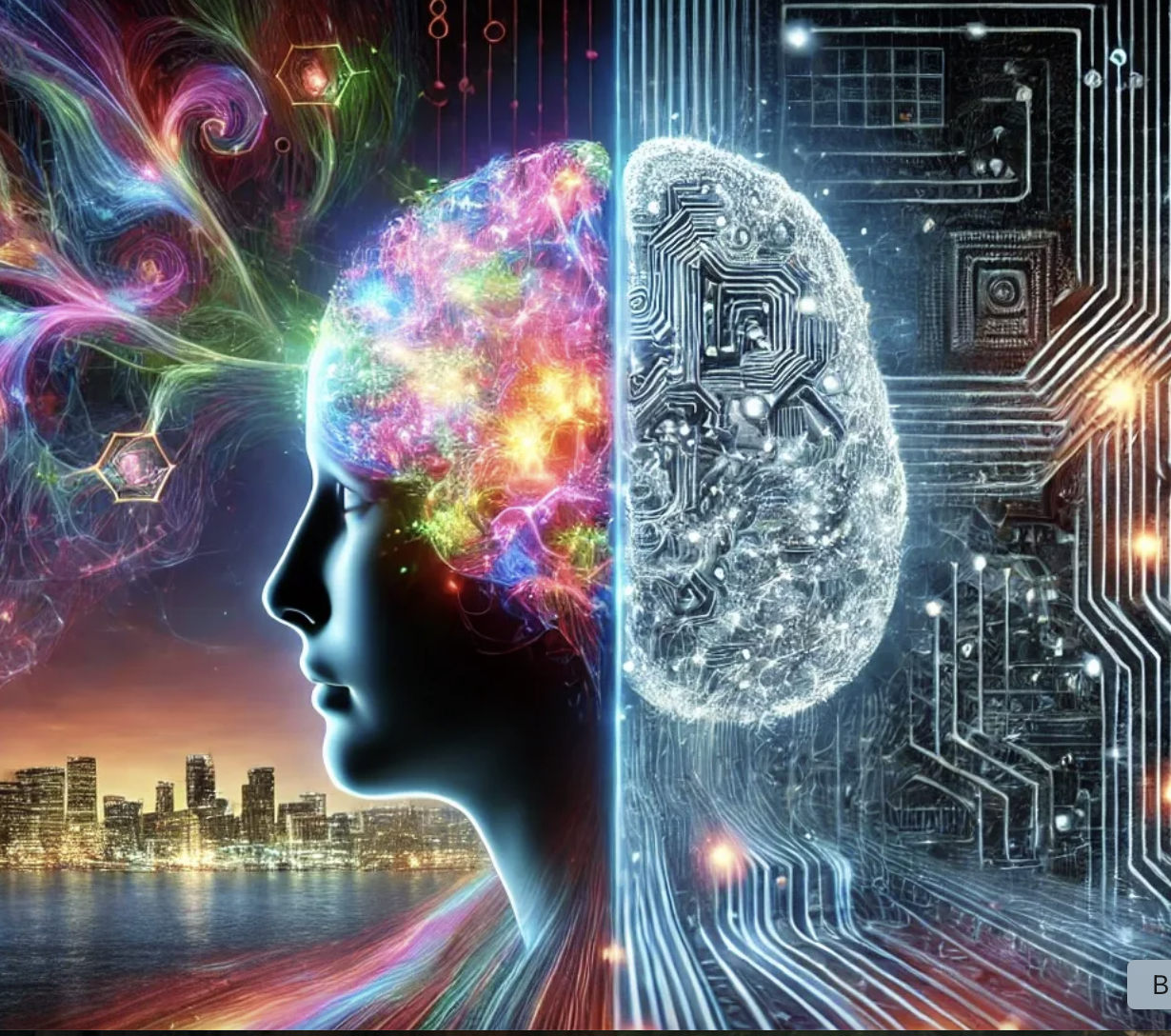The Human Algorithm: Where Brains Meet Bytes
If you were born in the 20th century then like me you’d probably remember a time when memorising phone numbers was a thing. In the 21st century that feat has passed for a ‘lost art’. Today we outsource our memory to Silicon Valley companies and instead memorise the moves to the latest TikTok trending dance. The real plot twist is that our brains are changing faster than a chameleon at a disco party (that’s a 90’s joke – yes I’m probably old fashioned sometimes, and not the drink by the way!)
 We’ve become incredible at parallel processing. I first became aware of this through observing my little nieces (Gen Alpha) and being really taken by how they could effortlessly hold a full conversation with me whilst texting away on multiple apps to their friends as well as watching their favourite show on telly at the same time. It seems that our visual processing skills are sharper today than they’ve ever been thanks in part to the age of endless scrolling. The little devices in our hands haven’t just captured all of our attention, they’ve literally caused a massive rewiring of our brains in profound ways.
We’ve become incredible at parallel processing. I first became aware of this through observing my little nieces (Gen Alpha) and being really taken by how they could effortlessly hold a full conversation with me whilst texting away on multiple apps to their friends as well as watching their favourite show on telly at the same time. It seems that our visual processing skills are sharper today than they’ve ever been thanks in part to the age of endless scrolling. The little devices in our hands haven’t just captured all of our attention, they’ve literally caused a massive rewiring of our brains in profound ways.
But there’s a catch to all this. As we ‘level up’ in some areas, we’re also experiencing what could be termed the “Google Effect” – where our brains are slowly becoming more like search engines and less like the able libraries they used to be back in the day. We seem not to need to know things anymore; we just need to know how to find things.
The Attention Economy: Each time you get a notification, your brain gets a tiny hit of dopamine. The Tech companies know this and one could say that they’re basically running a dopamine casino in your pocket. What this means is we are not really addicted to our phones; we’re addicted to what our brain think our phones are promising us.
Some could say that we’re more connected today than ever before and yet somehow these facts are also true:
- We feel more isolated
- We have more friends but fewer deep connections
- We have infinite information but shorter attention spans
- We have better tech but worse posture
The plot twist is that our brains are plastic. Not the kind of plastic that the corner shops still hand out with each purchase. We’re talking ‘neuroplasticity’ here – the kind where our brains constantly rewire themselves with every TikTok, Tweet, Snap that’s effecting the laying down of new neural pathways. We’re literally becoming what we scroll. One could almost say, it’s all a massive experiment on human consciousness (Cue: They Cloned Tyronne – a beautiful movie by the way, if anyone’s after a recommendation!) – If we really think about it, we’re the first generation to:
- Experience FOMO about things happening on the opposite side of the planet
- Have AI in our pockets
- Outsource our memories
- Have digital lives that are almost as real as our physical ones
So, we’re not just watching this transformation, we’re also actively creating and enabling it with every app we use and every piece of tech we adopt. Without knowing it, we’re actually voting for the future of human cognition.
So where does this leave us? This is where it gets interesting: Because our brains can’t tell the difference between scrolling Instagram and learning quantum physics, the same dopamine hits that make social media addictive can also make learning addictive. This is how we get to hack the system – call it a cheat code if you like:
- Using tech products more intentionally. Applying them like a tools rather than going at them like slot machines.
- Training our attention and focus like the superpowers that they are
- Remembering that we should be the users and not the products (as much as we can anyway)
- Keeping our dopamine hits as diverse as possible. Mixing some learning in with all the endless scrolling on TikTok (the western one anyway as I’m told TikTok’s quite different in the Far East – could someone confirm this?)
To use a clichéd business-phrase, what’s the call out action here? To avoid being called cyborgs with smartphones we need to carefully and thoughtfully navigate this biggest cognitive revolution since the invention of writing.
It’s not about fighting the future or resisting change; it’s about being more intentional about actually shaping our future.
We’ve got to remember that our brains are the ultimate technology. Everything else is just an upgrade package.